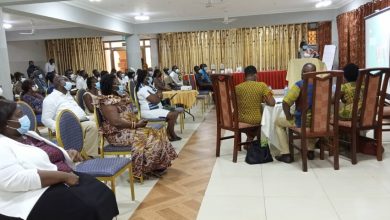
The recent WAICA Education Conference in Accra highlighted pivotal discussions on the future of insurance in West Africa.
Under the theme ‘Artificial Intelligence and the Future of Insurance in the Sub-Region,’ the conference explored the unique challenges and opportunities confronting an industry struggling with low market penetration, which remains at around 1%. This figure points to significant untapped potential within the sector.
Acting Commissioner of Insurance at the National Insurance Commission (NIC), Mr. Michael Kofi Andoh, urged insurers to consider artificial intelligence (AI) as a powerful tool for change. He emphasized that meaningful transformation demands more than enthusiasm; it requires a strategic, structured approach to ensure AI integration is effective, inclusive, and sustainable.
The region’s specific challenges, such as a predominantly informal economy, small-scale insurance providers, and a heavy dependence on agriculture, present both obstacles and opportunities for innovation. AI has the potential to transform the sector by enhancing risk assessment, streamlining operations, and improving customer engagement.
However, Mr. Andoh cautioned that AI adoption also comes with challenges, including data security, cost implications, and consumer protection issues.
A practical starting point suggested was for WAICA member companies to pool resources and conduct joint research into AI applications. Such collaborative efforts could alleviate the high costs of technology investments and develop solutions tailored to the region’s needs.

The industry also faces external pressures such as adherence to IFRS 17 and the growing impacts of climate change. Compliance with IFRS 17, while crucial, could overwhelm smaller firms that are already resource-strapped. This highlights the need for WAICA and regulators to provide technical and financial support to these businesses. On the issue of climate change, Mr. Andoh pointed out that while it poses challenges, it also offers an opportunity for insurers to develop products that address climate-related risks, particularly for the agricultural sector.
Such products could expand market reach and build resilience in vulnerable communities.
Ghana’s Insurance Act (2021) and its associated reforms set a benchmark for the region. Regulatory initiatives like sandboxes and risk-based supervision frameworks create a conducive environment for innovation. Other countries in the sub-region could learn from Ghana’s approach and adapt these frameworks to their specific contexts.
Both Mr. Andoh and Mr. Sampson Akligoh, a representative of the Finance Ministry, stressed the importance of actionable outcomes from conferences like these. Mr. Andoh emphasized, “Well done is always better than well said.”
To ensure lasting impact, participants of the WAICA Education Conference must commit to a clear, practical roadmap. This should include actionable steps for AI adoption, strategies for addressing climate change-related risks, and frameworks for regional collaboration.
The insurance industry is vital for economic development, providing security for businesses, supporting long-term investments, and contributing to economic stability.





